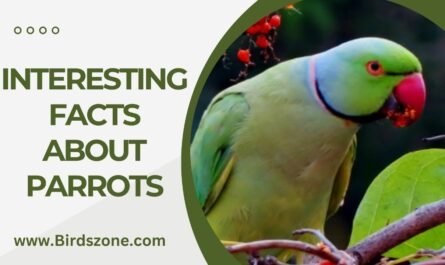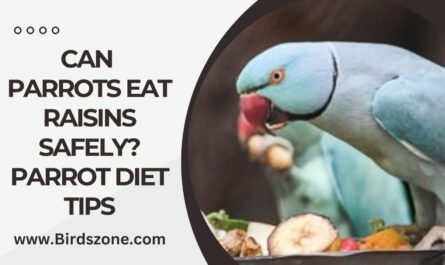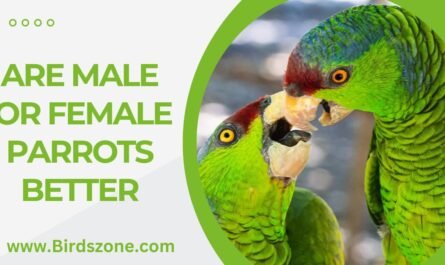Parrots are renowned for their vivacious personality and the ability to imitate the sounds of other animals, however their frequent and loud screaming can cause discontent for the owners. Knowing why they scream and the best way to deal with the issue can result in an enlightened and peaceful relationship between the bird and you. In this piece we’ll explore a variety of methods to reduce or eliminate your bird’s shrieking, all while ensuring that their emotional and physical requirements are being met.
Why Do Parrots Scream?
In order to figure out how to stop the parrot from screaming it’s crucial to comprehend the reasons behind this behaviour. Parrots are extremely smart and social animals, and their vocalizations are used for a variety of reasons. These are some of the most common reasons for parrots to scream:
1. Communication
Parrots make use of screaming for communication for a variety of reasons, including to warn other people of danger or draw attention to them. In nature Parrots are found in huge groups where loud voice calls are essential for survival as well as connection with others. If a parrot is loud in the cage, it could be seeking attention, positive or negative.
2. Boredom
It is one of the major factors for excessive screams. Parrots are extremely intelligent and require constant stimulation in order for their brains to remain active. In the absence of enough stimulation Parrots can scream in an escape from anger or to simply enjoy themselves.
3. Loneliness or Separation Anxiety
Parrots are naturally social creatures If left to their own devices for long durations they may experience feelings of isolation or loneliness. It can manifest itself as screams or screams, particularly in situations where they feel lonely or distant from their human counterparts.
4. Hunger or Thirst
Sometimes, parrots shout because they’re hungry or thirsty. If their fundamental needs do not meet the parrots will yell to express their frustration or desire to eat.
5. Attention-Seeking
Parrots are intelligent and realize that screaming could bring being noticed by their owners depending on whether it’s an expression of love or even an admonition. It can reinforce the behavior, and could lead to an ongoing cycle of attention-seeking screams.
How can you stop a parrot from screaming

We now know why parrots shout, let’s look at ways to stop or lessen this type of behavior.
1. Establish a Consistent Routine
Parrots love routines, and having a regular schedule will decrease anxiety as well as reduce noisy screams. Set regular time slots for meals and playtime, as well as training and even sleep. If your pet is aware of the expectations and is confident about its surroundings, it will feel more at ease and less likely to cry from fear or uncertainty.
Subheading: Setting Feeding and Playtime Schedules
- Feed your pet every throughout the day.
- Provide interactive playtime at particular times so that your pet entertained.
- Make sure you regularly take your pet bird outside of the cage to enjoy physical exercise and socialization.
2. Provide Plenty of Mental and Physical Stimulation
Parrots that are bored or under-stimulated is more likely to cry. Make sure your pet is provided with various things to play with, including puzzles and other activities that keep them entertained. Make sure to rotate the toys regularly to ensure that their surroundings are interesting. In addition, give them opportunities to engage in physical activities including climbing, flying and even out-of-cage playing time.
Subheading: Engaging Your Parrot’s Mind and Body
- Give a wide range of toys including playing with shredding games, as well as interactive puzzles.
- Promote time out of cage so that the bird can fly, or go out and explore in a safe manner.
- Create play structures and climbing branches inside the cage for exercise.
3. Reward Quiet Behavior
If your pet isn’t being still, reward them by giving positive reinforcement. It can come as a result of rewards or praise, as well as extra focus. Rewarding calm behavior can help your pet learn that silence can bring positive outcomes while shouting doesn’t. In time, this will lower the frequency of shouting.
Subheading: Positive Reinforcement for Quietness
- Treats or toys of your choice to reward your pet whenever they stop screams.
- Reward consistent calm behavior right after the parrot has stopped.
- Do not pay your attention to the bird when the parrot is yelling, since it could encourage behavior.
4. Avoid Giving Attention During Screaming
It’s easy to be tempted to respond whenever your pet cries, particularly when you’re trying to calm them. But, any attention, whether positive or negative. Try to avoid the scream and just wait for your pet to be quiet before paying any kind of attention. This will teach your pet that the sound of a scream does not bring rewards.
Subheading: How to Ignore Screaming
- If your pet screams at you, either turn away or get out of the area.
- The parrot should be quieted down before they respond.
- Don’t yell at or even scold your pet when it starts screaming at you, since this could cause stress, which can lead to worse behavior.
5. Create a Calm and Safe Environment
Parrots may be attuned to their surroundings, and noises that are loud, abrupt changes of routine, or a chaotic environment can lead to anxiety and excessive screaming. Be sure that your pet’s home is tranquil and well-controlled. Think about covering the cage when they are noisy and providing them with a peaceful place away from the distractions of your home.
Subheading: Minimizing Stressors in the Environment
- Create a quiet area to your pet when it is you need to.
- Beware of loud, sudden sounds which could wake your bird.
- Utilize calming methods for example, soothing music, in order to calm your pet.
6. Address Separation Anxiety
If your bird screams in fear of being separated It is best to gradually reduce their sensitivity to the absence of you. Beginning by leaving the room only for brief periods of time and gradually increasing the length of duration of your absence. Your pet should have lots of stimulation throughout these periods including toys and puzzles, so that they are entertained while you’re gone.
Subheading Aiding Your Parrot Cope With Separation
- Take your pet out of the room only for brief times, but increase your time when your pet gets familiar with being left alone.
- Give your bird toys to chew on or provide hunting opportunities to keep your bird entertained in your absence.
- Do not make too much exaggeration when going away or returning in order to prevent causing stress.
7. Check for Physical Needs
Sometimes, screaming can be an indication of physical requirements, like thirst, hunger, or the desire to get a bathroom. You must ensure that your pet is able to access to clean water and food throughout the day and has a balanced diet. Also, ensure your pet is comfortable and has an environment that is clean and safe.
Subheading: Meeting Basic Needs
- Make sure your pet has clean food and plenty of water to drink.
- Make sure your cage is clean and has bedding.
- Examine your pet for indications of illness in the event that your bird’s screaming is unusual or persists.
8. Seek Professional Help if Necessary
If the parrot’s behavior continues to annoy you regardless of your attempts to stop the issue, it could be beneficial to talk with an avian behaviourist or vet. An expert can evaluate the issue and suggest customized solutions or exclude any health concerns that may be underlying.
Subheading: When to Seek Professional Help
- Contact an Avian Behaviorist If your bird’s screams continue even after you’ve tried.
- Examine any medical condition through a veterinary professional when you experience other behavioral change.
- Expert guidance will help you solve complex behavioral problems that require expert guidance.
Conclusion
Even though parrots’ screams are irritating, it’s something that is able to be handled through tolerance and compassion. Through a routine that is consistent with engaging and stimulating activities as well as positive reinforcements as well as a peaceful environment it is possible to lessen your pet’s desire to shout. Keep in mind that parrots are intelligent and social animals who require physical and mental stimulation in order to flourish. If you can meet their requirements as well as responding appropriately to their behavior by observing them carefully it will ensure that your pet is comfortable and peaceful, resulting in peace and tranquility for you both.



